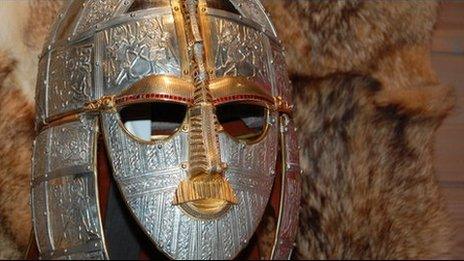Anglo-Saxon 'palace' found at Rendlesham near Sutton Hoo site
- Published
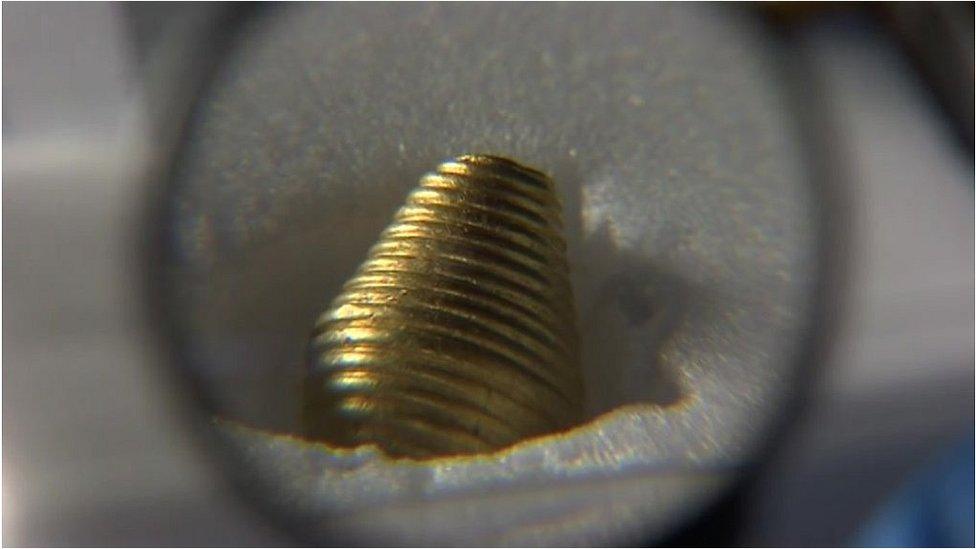
One of the beads found at the site in Rendlesham
Archaeologists believe they have found a lost Anglo-Saxon royal palace near one of Britain's best known finds.
Archaeologists have been studying an area at Rendlesham, about four miles (6km) from the Sutton Hoo burial site.
Faye Minter, project co-ordinator, said the remains of a 23m (75ft) by 9m (30ft) structure could have once been a royal hall or palace.
And she said it was "likely" there are "other royal burial sites" like Sutton Hoo dotted along the River Deben.
The hall find, said Ms Minter, of Suffolk County Council's archaeological unit, might be the same "palace" referred to by the Venerable Bede in the 8th Century.
For more archaeology stories follow our Pinterest board, external
The remains at the 120-acre (50 hectare) site were found with aerial photography and geophysical surveys.
"We have discovered what we think is a large Anglo Saxon Hall, which could be the palace itself, if you could call it that," she said.
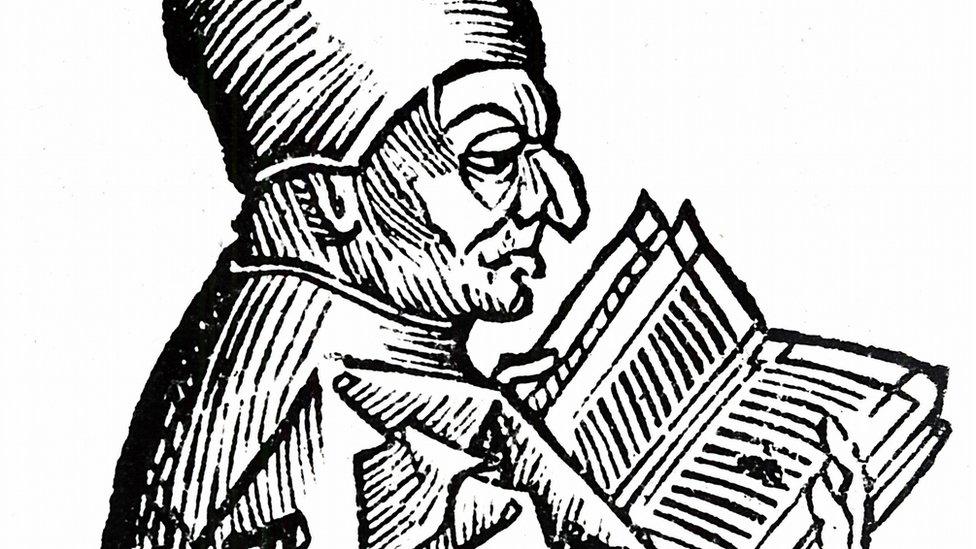
The Venerable Bede mentioned the 'king's village' at 'Rendlaesham' in his 8th Century book An Ecclesiastical History of the English People
"We're convinced we've found a royal settlement of very high status, and I suppose it would be a large hall rather than a palace as it would spring to mind to us."
The discovery will be announced later at a conference in Bury St Edmunds.
Asked whether a second burial site similar to Sutton Hoo might be found, Ms Minter said: "We hope there will be more to come. Whether or not they would be ship burials like Sutton Hoo, who can say?"
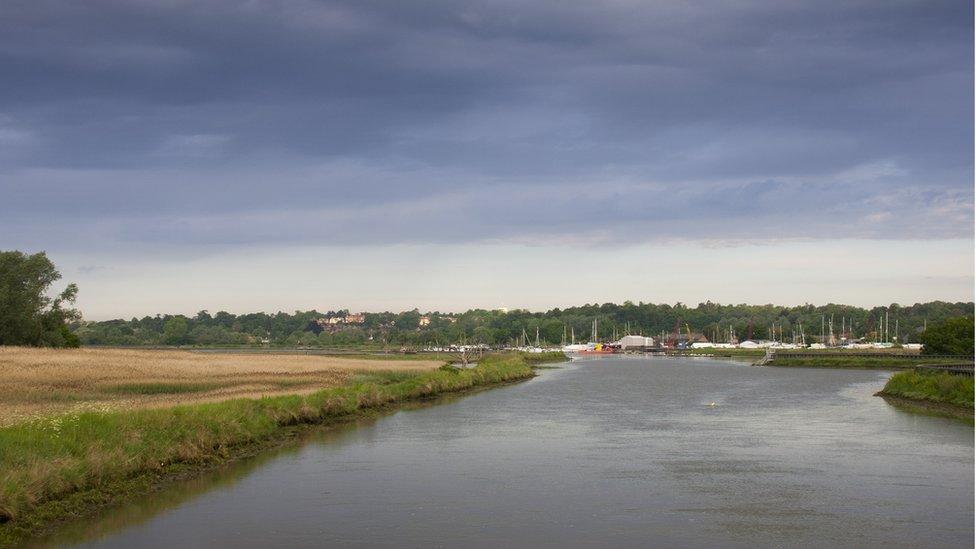
Experts believe there are a number of further Anglo Saxon royal burial sites awaiting discovery along the River Deben
About 4,000 items, including intricate metalwork, coins and weights, have been found at Rendlesham. About 1,000 of them are Anglo-Saxon, Ms Minter said.
Dr Helen Geake of the British Museum said while the "palace" find was "incredibly exciting", it could be one of a number dotted around East Anglia.
"There would have been quite a few of these palaces or halls dotted around," she said.
"The king [of the time] would have toured his kingdom in order to show his magnificence to his people, so he would have had lots of places to base himself around East Anglia."
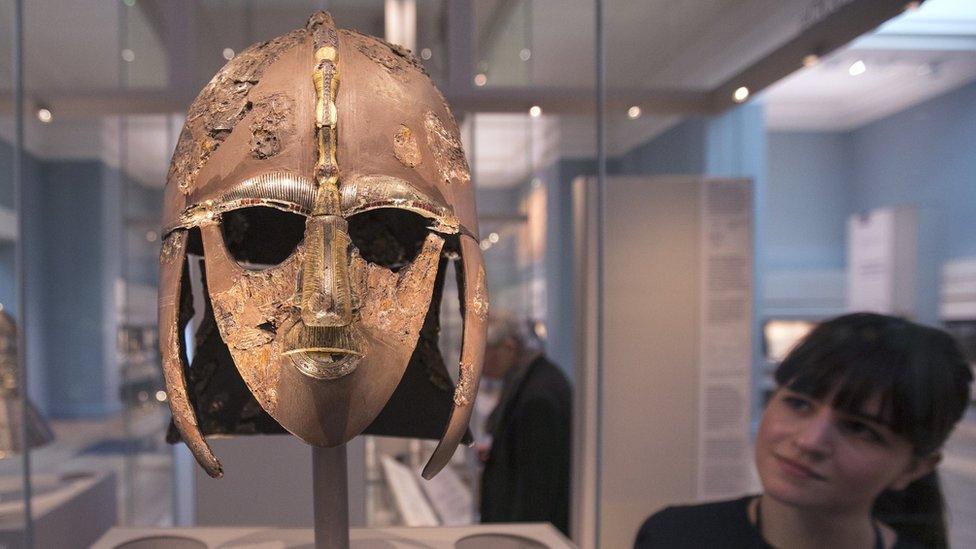
The remaining fragments of the Sutton Hoo warrior's helmet are on display at the British Museum in London
It is thought Rendlesham and Sutton Hoo were intimately linked - with Sutton Hoo being the burial place of the king at Rendlesham.
The discovery at Sutton Hoo was made in 1939 when the landowner Edith Pretty asked archaeologist Basil Brown to investigate the largest of several mounds on her property.
Beneath the mound was the imprint of a 27m (88ft) ship. At its centre was a ruined burial chamber packed with treasures.
- Published10 March 2014
